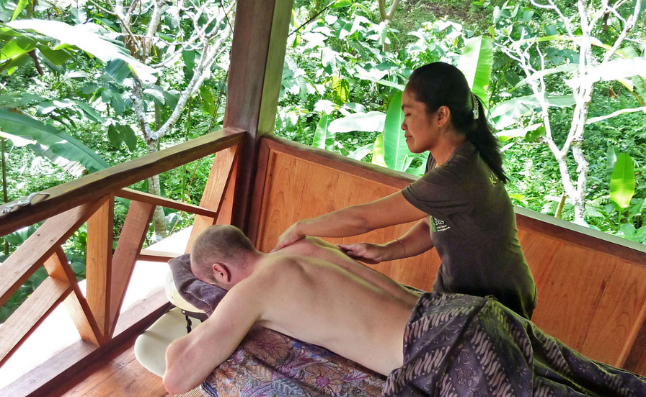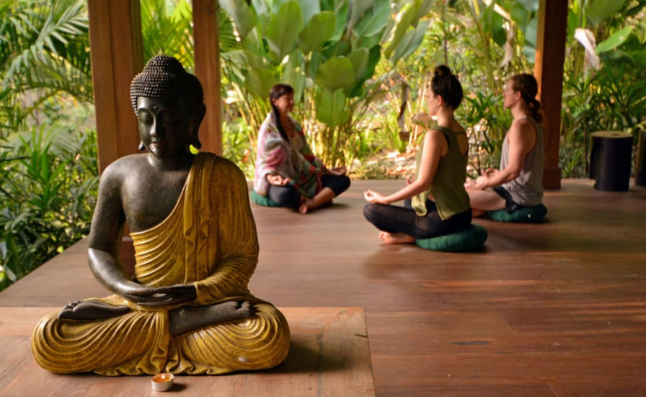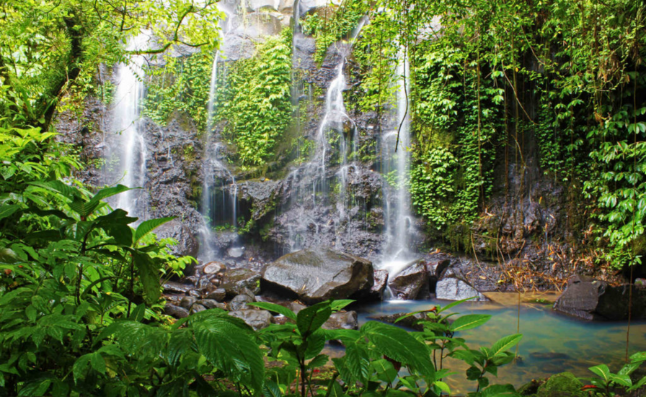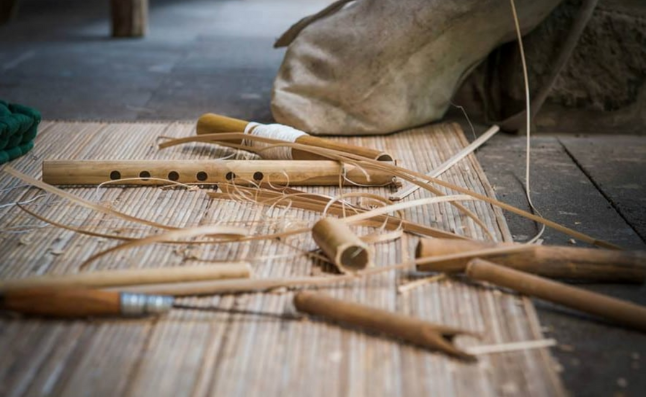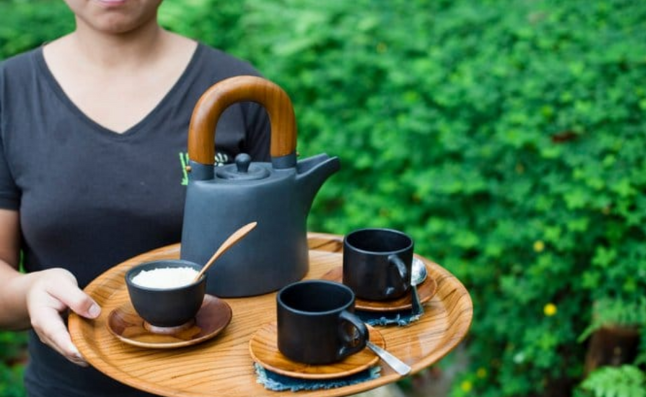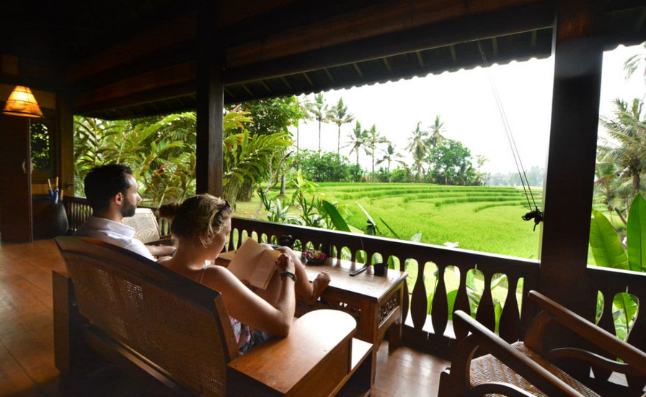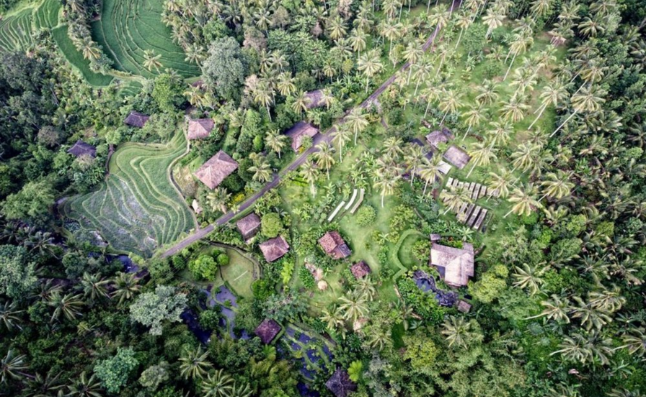Sustainability Commitment
OUR FOOD
Permaculture is at the heart of everything we do. This ensures that we serve you the best possible food in the cleanest and purest way; without causing any harm to our lands. Permaculture integrates land, resources, people and the environment through mutually beneficial synergies. The whole idea behind this system is to work with nature rather than against it.
By using permaculture, we cohabitate in a functional and mutually beneficial system with nature, whereby whatever we take from the land we give back, so it’s a never ending cycle. We only take what we need and limit waste as much as possible. By thinking carefully about the way we use our resources (food, energy, shelter, materials and non-materials) it is possible to get much more out of life by using less. By working with nature and understanding its patterns, we can be more productive using less effort, thereby reaping more benefits for our environment and ourselves. This encourages us to be resourceful and self-reliant.
75% of our restaurant menu consists of local cuisine, which is cooked by our Balinese staff using traditional methods learnt from their own mothers and grandmothers. To give you the full flavors of Bali, we freshly grind our local herbs and spices daily. We work with our guests to reduce food waste by encouraging them to pre-order meals. When there is food waste, it is consumed by our free-range chickens, or if the food is not appropriate for chickens, our staff take it home to feed their pigs.
In our rich food garden we grow organically a diverse selection of vegetables, several lettuce varieties, sweet potato, spinach, rocket, celery, pumpkin, beans, kale, cucumber, radishes, pak choy; condiments such as vanilla, ginger, turmeric, galangal, cinnamon, coriander, lemongrass, basil, oregano, all spice and chilli; and fruits such as rambutan, kepundung, tomatoes, avocado, lime, jeruk bali, mandarins, mango, star fruit, jack fruit, guava, papaya, banana, pineapple and coconut. We harvest our own palm sugar, and soon we will also have organic coffee. Native fruit and nut trees have been planted to encourage beneficial insects and wildlife, and to diversify our fruit harvest so that we are more self-sufficient.
We do not use chemical fertilizers and we only monocrop rice (because of its requirement of padi conditions). All other seedlings are planted randomly and interspersed with aromatic herbs to confuse predators. When we do experience insect plagues, such as grasshoppers in the paddy, we use a strong brew of black tea, mixed with coriander and chilli, which is very effective.
Our free-range chickens produce eggs daily, and help to turn and fertilize our compost, which is used to nourish the soil of our intensive food garden. We never resort to pesticides. We are always on the lookout for materials that can help build the food garden soil, such as decomposing timber that breaks down, carbon rich cacao pods, grass clippings and waterweeds.
We take immense pride in supporting the re-introduction of heritage rice on the island. Fewer farmers on Bali are harvesting heritage rice due to the extended growth period required. They resort to growing Monsanto hybrid rice, which takes three months until harvest, employing pesticides and chemical fertilizers to keep pests at bay and speed up the process.
The variety of grain we have chosen takes only two weeks longer to grow. Growing organically is more labour intensive, weeds need to be removed instead of poisoned, and it takes time and labour to improve the soil instead of using chemical fertilizers. We improve the soil by turning in the old crop, along with chop and drop material (vegetation waste from around the property) and adding mature cow manure. It would help to build the soil if we could grow an alternate crop, like a green manure crop, but our paddy has several springs that prevent it from being able to drain sufficiently for an alternate crop.
The main disadvantage of growing heritage grain is that it takes a little longer to mature; therefore it is difficult to coordinate our crop with our neighbors and share the predators before harvest. However good things take time, which is why heritage rice is far more nutritious and tasty.
At 9.30 each morning, guests are welcome to join our 1 hour tour of Bali Eco Stay. It provides an insight into how permaculture principles have guided our resort design, construction, food gardens, chicken compost, aquaculture, heritage rice production and hydro power generation. Please notify restaurant staff at breakfast if you would like to attend.
OUR WATER
- NO PLASTIC BOTTLES PLEASE!
We offer unlimited complimentary filtered spring water to all guests by providing a water dispenser in each bungalow. We have a strict no plastic bottled water policy to eliminate plastic waste. In fact, even the bungalow shower and tap water is filtered spring water, which has been oxygenated and mineralized by Mother Nature. Hikers are equipped with stainless steel bottles for hydration.
Although we are located in a high rainfall area, we choose to use water responsibly and save it as much as possible. We use low water pressure showers and dual flush toilets, and change bathroom towels every 3 days or on request. Each toilet and shower has its own septic system and wastewater garden.
The water is recycled back into nature via vegetated wastewater gardens, which allow us to protect the environment. Wastewater flows through specially designed tanks where solids are naturally broken down and can then flow out into the wastewater beds. These are heavily planted out with “gross feeders”, which are plants that are nutrient hungry. We use ornamental ginger varieties for their high nutrient demand, and the flowers produced are harvested and used in decorative arrangements. If there is a watercourse close by, we plant extra heavy feeders (such as bananas) outside the wastewater garden and before the watercourse, in order to soak up any nutrients that may have escaped our wastewater bed planting.
In order to ensure that our wastewater garden remains healthy, we provide you with hand-made natural soaps and shampoos, which are made locally and smell so good. We only use biodegradable laundry and detergents, sodium bicarbonate for stubborn fabric stains, baking soda and vinegar for cleaning purposes. The guest swimming area is a non-chemically treated natural rock pool.
Our river is also used to generate most of our power. Hydro electricity powers 60% of the resort except for refrigeration, which requires a stable and consistent power source. We have generators for backup in case something unpredictable happens (this is Bali after all).
OUR PEOPLE
All hospital expenses for staff are covered by the resort, which includes a three-month full pay maternity leave and two weeks full pay for paternity leave. We also make sure that we are closed for three days during the year so that our staff can enjoy the religious ceremonies of Nyepi and the Balinese New Year with their familes.
We lead several activities in our neighbouring villages, which include funding programmes in nearby schools to educate the next generation of local children on recycling and environmental awareness through movies and lectures. Educating the local villagers is a vital part of waste management as the Balinese culture of throwing rubbish on the ground comes from a history of everything being wrapped in banana leaf. They do not understand why plastic does not disappear so quickly so we have to redouble our efforts on a continual basis.
Bali Eco Stay also contributes to the local Banjar (which is the organisational centre of the community) to support important ceremonial sites. We also support local businesses to provide mountain bike and motorbike hire, trekking services and taxis for our guests. Where possible, we work with local artists to decorate the resort.
![Bumi Journey | Bali Couple Getaway Package [For 2 People] - Bumi Journey](https://bumijourney.com/wp-content/uploads/2023/02/cropped-cropped-cropped-Logo-Bumi-Journey-1.png)
